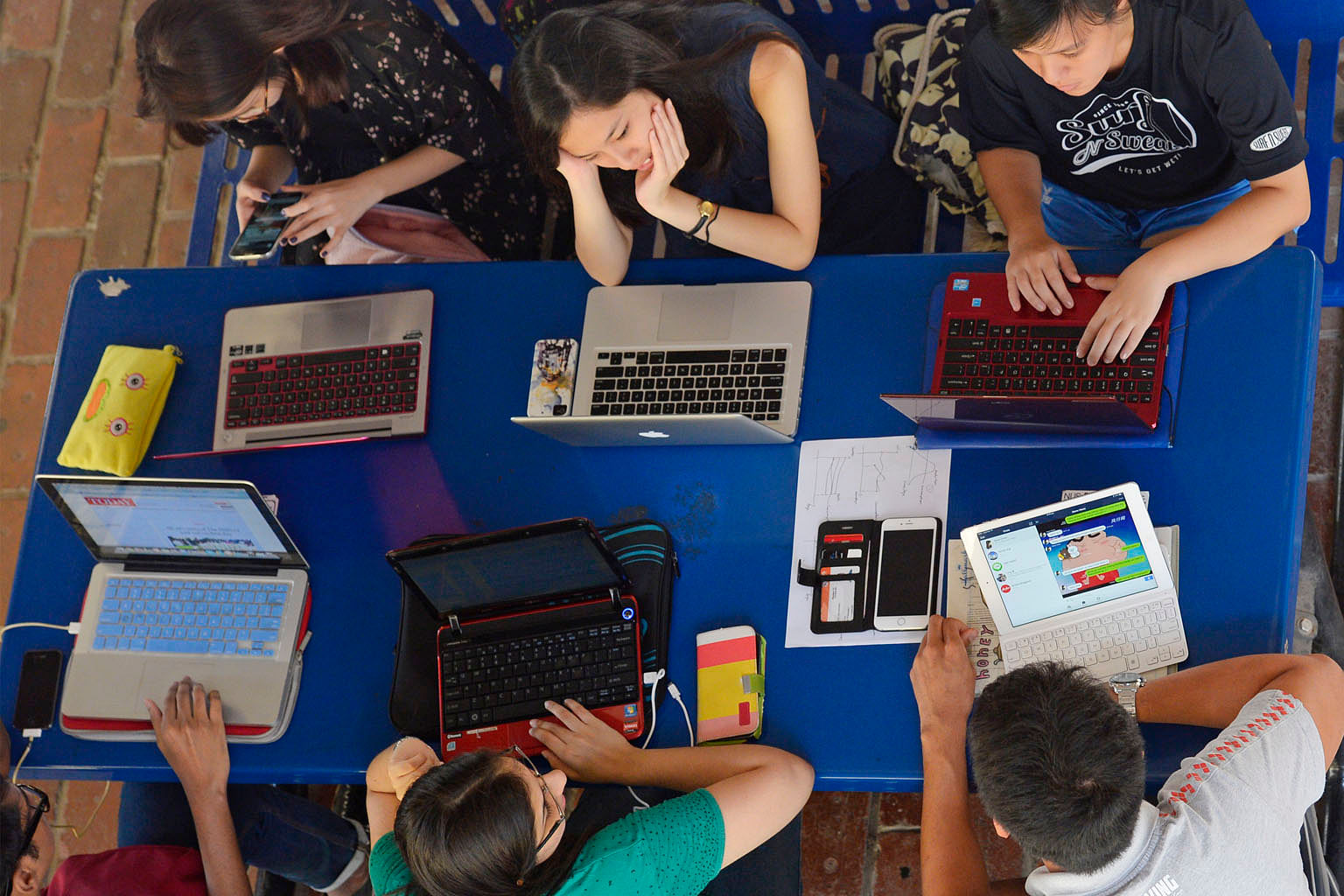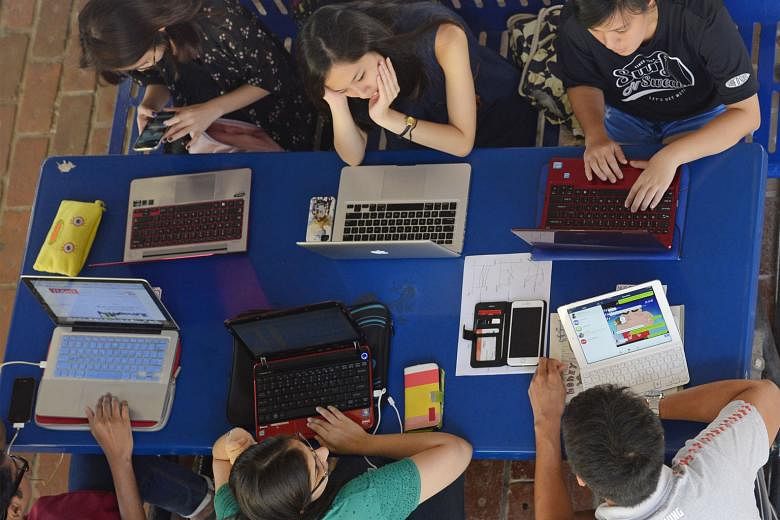A recent Straits Times article ("Coding classes for kids in high demand"; last Wednesday) highlighted the increasing number of parents in Singapore who see knowledge of computer programming and coding as a core skill for the digital future.
Earlier, at the World Economic Forum held in Davos, Switzerland, in January, there was much debate and discussion about the fourth industrial revolution, how technology will fundamentally reshape the nature of work, and the implications for education and societies.
In a world that is increasingly driven by technology and the continuing digital revolution, it seems easy to conclude that the most appropriate response among students and educators is to sharpen the focus on acquiring specialised technical skills. There is clearly a very important place for expertise in quantitative reasoning, mathematics and statistics as part of the general skill set for the future. However, we would argue that these need to be embedded in a form of education that emphasises breadth with rigour, rather than merely narrow specialisation.
It is clear that to make progress in many of the world's most pressing issues - such as climate change, the management of chronic diseases like diabetes, or driving economic progress while addressing social inequalities - we will require knowledge, perspective and expertise beyond technical skills and solutions. The ability to identify and frame the most important questions, to think creatively and differently about issues and to draw on ideas from different domains of knowledge to formulate solutions will be increasingly necessary.
The recent global news has been dominated by countries and citizens having to come to terms with issues of conflict, migration and identity, and rapid unpredictable change. For universities, a key question is this: What can we do to prepare future generations of talented individuals better, so that they can contribute positively to the debate and action in these areas? A central need, in our view, is for graduates who are comfortable working with complexity, who have a deeper and more nuanced understanding of the cross-cultural, historical and social contexts relevant to major global issues.
This is particularly salient as Asia continues to grow in importance in the global arena. "Few regions present more opportunity to the 21st century than the Asia-Pacific," United States President Barack Obama said recently in reaffirming a rebalanced US foreign policy.

Prime Minister Lee Hsien Loong has urged the US and Asia to stay this course, saying: "What's most important is that the direction be sustained and enhanced."
The good news, therefore, is that educators in the US and Asia have a special opportunity to learn from one another and lead together.
Singapore's first liberal arts college, Yale-NUS College, "a community of learning, founded by two great universities, in Asia, for the world", draws on the heritage and expertise of Yale University and the National University of Singapore (NUS) to re-imagine liberal arts and science education.
At the heart of the Yale-NUS experience is a common curriculum covering the social sciences, humanities and natural sciences. In addition to their area of specialisation, students explore Aristotle and Confucius, Cicero and Sun Tzu, and a full range of ancient, historical and contemporary knowledge from throughout human societies.
Faculty members draw lessons from the diverse intellectual traditions and cultures because no one person, discipline or culture has all the answers. This curriculum is combined with an immersive residential college experience that fosters the ability to analyse issues, reflect critically, solve problems and communicate effectively.
These skills, and others such as emotional intelligence and cognitive flexibility, need frameworks that involve deep and broad understanding of global and local complexities, as well as a spirit of collaboration, cultural understanding and respect, to be truly effective.
In learning coding, for instance, the idea is to look beyond acquiring a technical skill and at nurturing problem-solving abilities based on algorithms, technological awareness, sensing where the business trends are, as well as the ability to weigh in on ethical discussions such as privacy. Only then can universities and the talent they nurture truly hope to influence the future.
The response to the college has been impressive: In its first three application cycles, Yale-NUS attracted more than 30,000 highly qualified applicants from around the world - less than 5 per cent of whom could be admitted.
This confirms what both Yale and NUS believed from the outset of our planning less than a decade ago: There is a hunger throughout the world, and in Asia, for a holistic and innovative liberal arts and science education that draws from both the East and the West.
- Professor Peter Salovey is president of Yale University. Professor Tan Chorh Chuan is president of the National University of Singapore.

